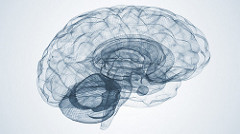Yesterday, I’ve read the most eye-opening article about another form of dementia that is claiming thousands of people in the U.S. This disease is called frontotemporal dementia. An estimated 50,000-60,000 people in the U.S. are diagnosed with this lesser-known dementia.
What is it? It is a neurological disorder centered in the frontal lobe of the brain, the part responsible for our behavior and emotions. My aunt is one of these many victims currently battling this disease. I’ve learned several other interesting things about the disease through this article. I’ll be happy to share them with you along with a link to the article at the end.
Because it affects the frontal lobe of the brain, this dementia causes people to lose their personalities first. A disturbing fact about the disease in the article is that it usually hits people in their 30s, 40s and 50s. Although people dealing with this disease may seem normal on the surface, those personality traits family and friends know and love about that person begin to disappear. They began to lose their social skills and their lack of awareness altogether. A lot of them are unaware that they ha

ve even changed.
“What it steals are the things we value most as human beings. The desire to tell our family we love them, the ability to control our behavior, the very essence of who we are-our personality,” said Susan Dickinson, executive director of The Association for Frontotemporal Degeneration, a national nonprofit organization based in Pennsylvania.
Experts estimate that many more may suffer from the disease but have not yet received a correct diagnosis. Which means there could be people walking around with the disease and don’t even know it. The best that we could do for our loved ones is to be there for them and to help them manage living with this disease and many others invading our bodies. Here’s the link to the article- https://www.theatlantic.com/health/archive/2014/01/a-lesser-known-dementia-that-steals-personality/282661/. For more information about frontotemporal dementia, visit the Association website at www.theaftd.org.

